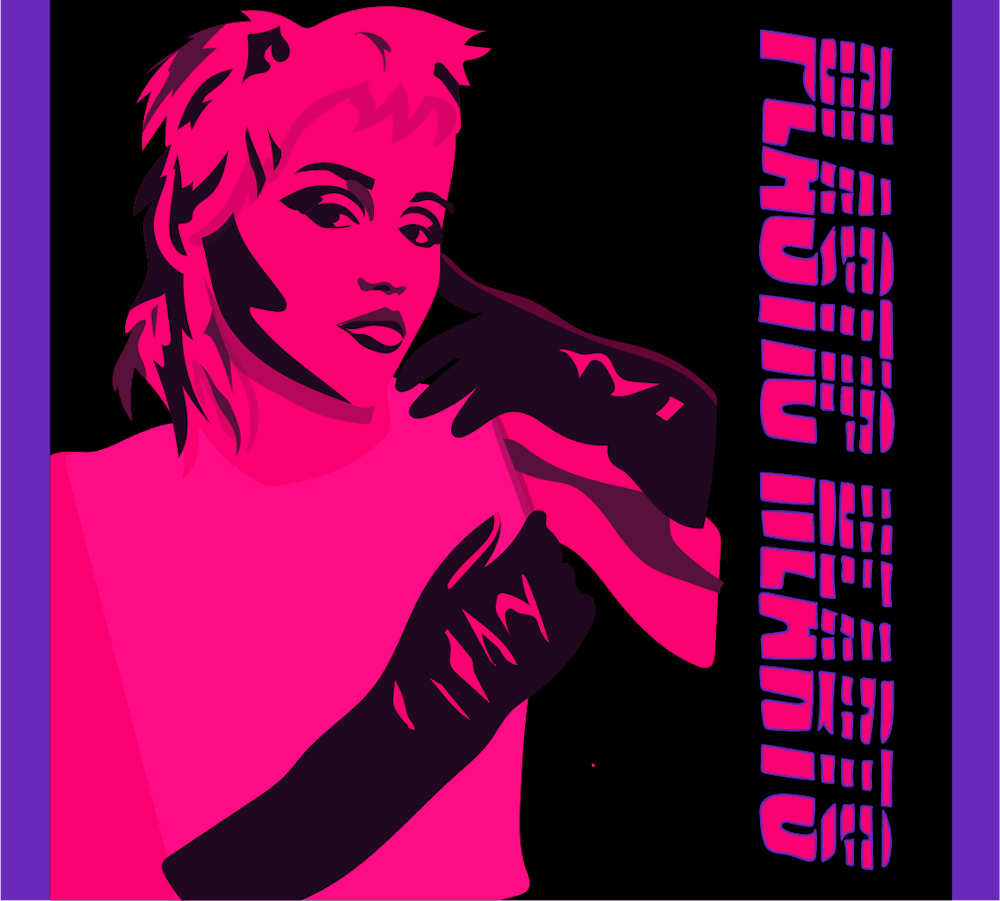It’s a chilly Wednesday evening in November of 2009. My idol, Miley Cyrus/Hannah Montana, is literally in the same room as me, breathing the same air. Ohmygod. It’s my first concert, and although my seven–year–old ego spends much of it being embarrassed by my mom and grandma dancing, it also happens to be the best night of my life thus far.
Hannah Montana was my favorite show as a kid, but my love for Miley didn’t stop at the (dramatic) removal of a blonde wig. I was a fan through her Breakout release when she began to—literally—break out of her Disney contract. I adopted “Party in the U.S.A.” as my preferred national anthem, and even stuck by her side during the “Can’t Be Tamed” controversy. As I grew, I watched her grow as well. Despite a three year musical hiatus only to end with what I refer to as the “twerking era,” I always have and always will have room in my heart for Miley.
Post Bangerz, Miley experimented with a more psychedelic and wacky sound on Dead Petz, and then shifted to a sweeter, fresh–faced, beachy vibe on Younger Now. She’s tried on her fair share of hats, and needless to say I was curious to discover what the much anticipated Plastic Hearts would have to offer.
After hearing her badass cover of Blondie’s “Heart of Glass,” which was released as a single in late September, I expected the album to take on a more rock and roll vibe. Upon hearing the entire album, though, I was kind of surprised at how pop it sounded. Catchy, yes, but generic. Her covers of rock anthems are stunning—“Zombie” by the Cranberries, and even "Edge of Midnight"—a mashup of her own “Midnight Sky” with Stevie Nicks’ “Edge of Seventeen”—but I felt that the rest was lacking. Was Miley really reborn as a rockstar, or is she just stuck in pop purgatory?
I think I felt this way initially because I wanted to see her in line with some of my favorite ladies of rock, and ones I know she admires as well: Joan Jett, Stevie Nicks, Blondie, etc. The thing about Miley, though, is that she’s always unapologetically herself. Plastic Hearts has echoes of past Miley sounds at its core, and she draws on her influences to edge it up. The record is heavily inspired by '80s pop–rock: This is especially evident in “Prisoner (Feat. Dua Lipa),” which sounds strikingly similar to Olivia Newton John’s “Physical,” and of course her songs with Billy Idol and Joan Jett, reminiscent of both artists’ respective styles.
Miley also throws out potential references to other artists across multiple decades and genres. On “Never Be Me,” Miley sings “I walk the line / I play with fire,” which could be a nod to one of her dad’s favorites: Johnny Cash’s “I Walk the Line.” On “Plastic Hearts,” Miley plays homage to the Rolling Stones with an intro that resembles “Sympathy for the Devil.”
I was also occasionally reminded of the Hannah Montana era, which brought a sense of nostalgia and childhood to what is otherwise a very mature album. Her song “High” can be seen as an extension of “The Climb:” both are pop–ballads with powerful buildups. Except this time, she’s fallen to a lower point on the mountain. She reflects on letting go of a particular relationship, and “still [feels] high.” Although this is likely more of a reference to being intoxicated, it can also be interpreted as the feeling of being on top of the world.
I recently watched Zane Lowe’s interview with Miley, and I was struck by an immense admiration for her wit and maturity. She got so introspective in the creation of the album, and it’s beautiful to watch her talk about her brilliant insights and changed world view. She delves into past relationships, death, independence and self–reliance, and feminism. Some of my favorite lines of the whole record are in “Golden G String,” a song not aptly named for what it’s really about. As she sings “The old boys hold all the cards and they ain't playin’ gin,” she reflects on the idea that old white men still have a hold on our futures, but she owns her own body and regains control by stating “There are layers to this body / Primal sex and primal shame / They told me I should cover it / So I went the other way.”
I’m impressed by how intensely Miley looked inwardly at her flaws, her beliefs, and her learning experiences. I see Plastic Hearts as a synthesis of her influences and personal growth over the years, and it is so distinctly and genuinely her own. It makes me feel proud to have watched her mature and to have had her as an inspiration for so much of my life. The world has a lot to learn from Miley: Use Plastic Hearts as your textbook as you reflect on your own relationships, both with others and with yourself.







